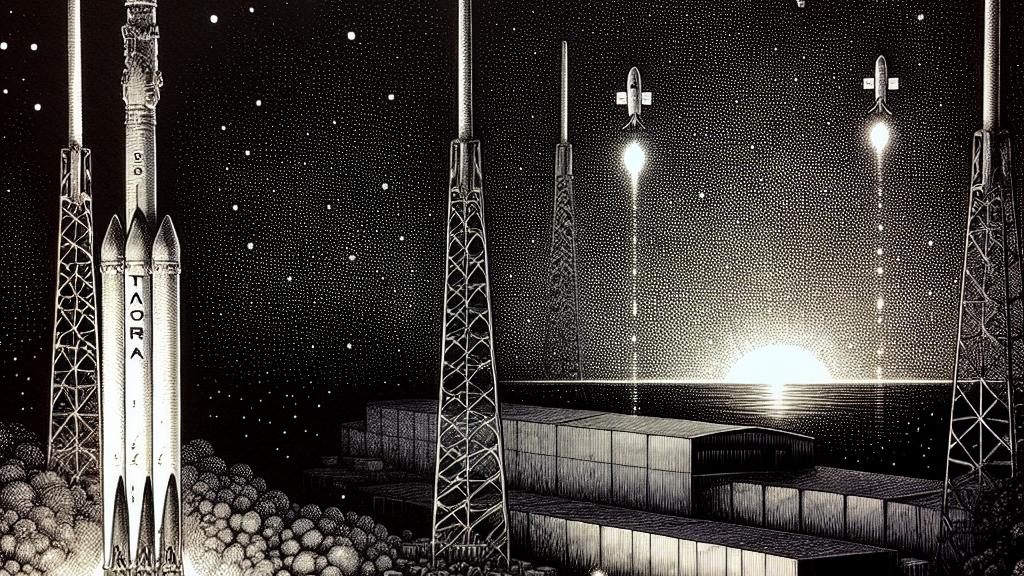Taiwan Soars: SpaceX Launches Dual Satellites into Orbit!
Overview
- SpaceX successfully launched two CubeSats from Taiwan, named Toro and Nightjar, into orbit.
- The launch, part of a mission with over 100 satellites, took place at Vandenberg Space Force Base in California.
- CubeSats present opportunities for affordable space research and innovative applications in industries like fishing and communication.

A Milestone Launch for Taiwan's Aerospace Aspirations
On August 17, 2024, a major milestone was achieved when SpaceX's Falcon 9 rocket launched two Taiwan-developed CubeSats, Toro and Nightjar, into orbit. This event took place early in the morning at Vandenberg Space Force Base in California, along with a payload comprising over 100 other satellites. The successful mission not only demonstrates Taiwan's growing capabilities in aerospace technology but also enhances its reputation in the global space community. The Taiwan Space Agency (TASA) emphasized that such missions are vital for Taiwan’s aspirations to be an influential player in the aerospace sector, fostering both technological advancement and international collaborations.
Transformative Technologies with CubeSats
The CubeSats, weighing about 1.3 kilograms and designed in a compact 3U structure, represent a cutting-edge advancement in space technologies. The Toro CubeSat, constructed by Pyras Technology, is equipped with advanced ocean color cameras aimed at studying marine environments. This initiative is particularly crucial for Taiwan's fishing industry, as it will facilitate precise resource management by analyzing ocean color data. Conversely, the Nightjar CubeSat, developed by Rapidtek Technologies, focuses on enhancing communication through high-speed Internet of Things (IoT) capabilities, enabling efficient data transmission between satellites and ground stations. This innovative approach is set to revolutionize communication by providing quick, reliable connections essential for modern industries.
Strategic Vision for Future Space Initiatives
In a bid to lead in the field of aerospace technology, TASA has launched a comprehensive ten-year satellite innovation program aimed at developing CubeSat capabilities within Taiwan. This initiative encourages local firms to take ownership of the complete satellite mission process, including design, manufacturing, integration, and launch operations. The anticipation of deploying larger CubeSats in the '8U' structure by 2025 reflects Taiwan's ambition to evolve from component development to full mission execution. This strategic move not only positions Taiwan as a competitive force in the global aerospace market but also nurtures a culture of innovation that promises to link scientific explorations with practical applications in sectors such as environmental monitoring and telecommunications, ultimately benefiting society as a whole.

Loading...